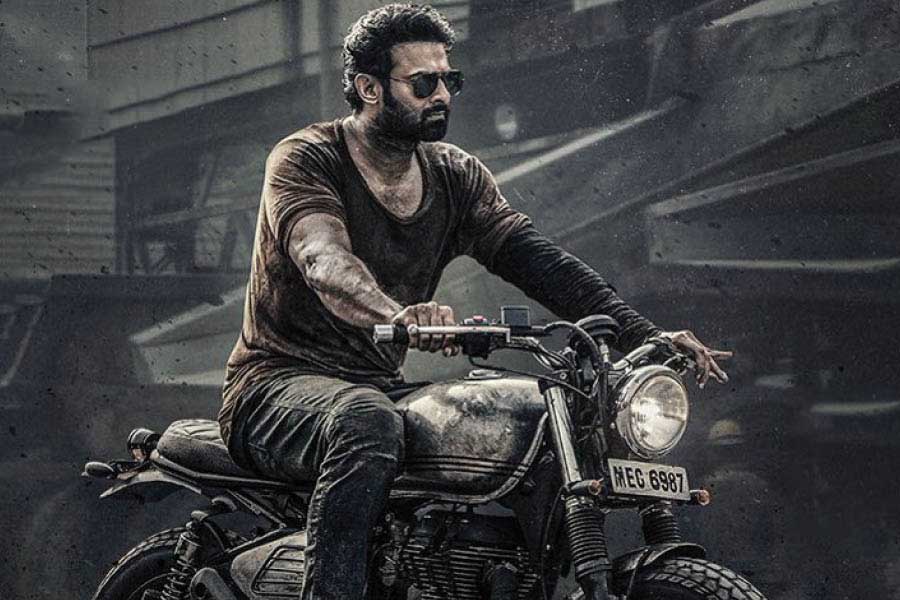If the dark, grungy world of KGF is your jam, if high-octane action sequences get your blood pumping, if the sight of blood doesn’t make you feel queasy, if you have been waiting to see Prabhas in an avatar that can match up to his Baahubali role, and if you don’t mind waiting for almost three hours to make head or tail of what is happening on screen and then being told you will have to wait for Part 2 to get the full story, then Salaar: Part 1 - Ceasefire is just the weekend watch for you.
The film begins in the past with the story of friendship between two young boys — Vardharaja Mannar, the son of an important man, and Devaratha, a seeming nobody — who are willing to go to any lengths for each other. In the present day, the arrival in India of Aadhya (Shruti Haasan) sends many people across the country into a tizzy trying to nab her as revenge against her father.
Aadhya is sent off to a remote village in Assam under the protection of Devaratha (Prabhas), who now lives as a coal miner, with his mother. Devaratha’s mother’s paranoid reactions are the only hint that there is more to the strangely nonviolent man who plays cricket with the local children. It is only when Aadhya is kidnapped by Vardharaja’s (Prithviraj Sukumaran) men and Devaratha is forced to reveal his true, violent self that the audience is finally transported back to Khansaar, a fictional township where the story began.
KGF director Prashanth Neel is a master of world building and he has done it again with Salaar, creating a fictional place with its own rules, customs, laws and lawlessness along with its own history. Unfortunately, the back and forth between timelines causes confusion and makes it hard to follow. It is even harder to keep track of who is who and what is what with the plethora of characters, who, even if they are unidimensional villains, have a lot to contribute to the story that is unfolding. What it doesn’t take away from, however, is the drama that is in abundant supply.
The second half of Salaar: Part 1, narrated to Aadhya by another Khansaar character, tells the story of how after their separation in childhood, Deva and Vardha reunited when Khansaar politics put Vardha’s life under threat. What unfolds is one-and-a-half hours of constant conflict with a high body count that will thrill some people and put some off. Once back in Khansaar, Deva became a beast — a one-man army — who would kill anything that stood in the way of his friend.
Prabhas and Sukumaran’s bromance is easy and their camaraderie often draws a quick chuckle even in the midst of all the bloodshed. You get the hint that the two friends are perhaps enemies now, and only at the end do you realise that there is a lot more of the story left to be told and Prabhas’s character has yet another layer waiting to be unravelled.
One has to commend the action sequences, which are beautifully choreographed to thumping music that heightens the impact. Neel uses Prabhas’s towering presence well enough to have the morning audience at the movie hall cheering and shouting every time the “Rebel Star” graces the screen. Silent and violent with a vulnerable core and strong moral code, Deva is a character tailor-made for Prabhas. And it is a pleasure to be able to see him dominate the screen after ages.
Most of the supporting cast — Jagapathi Babu, Bobby Simha, Easwari Rao, Sriya Reddy and Mime Gopu — deliver strong performances, many of them possibly will have a bigger role to play in the second part of the film. Shruti Haasan, unfortunately, has very little to do than be the audience to the tale being narrated.
One can hope that a lot of the questions that remain unanswered will be addressed in Salaar: Part 2 — Shourangya Parvam and it won’t take half as long to finally get the story to make some sense.










